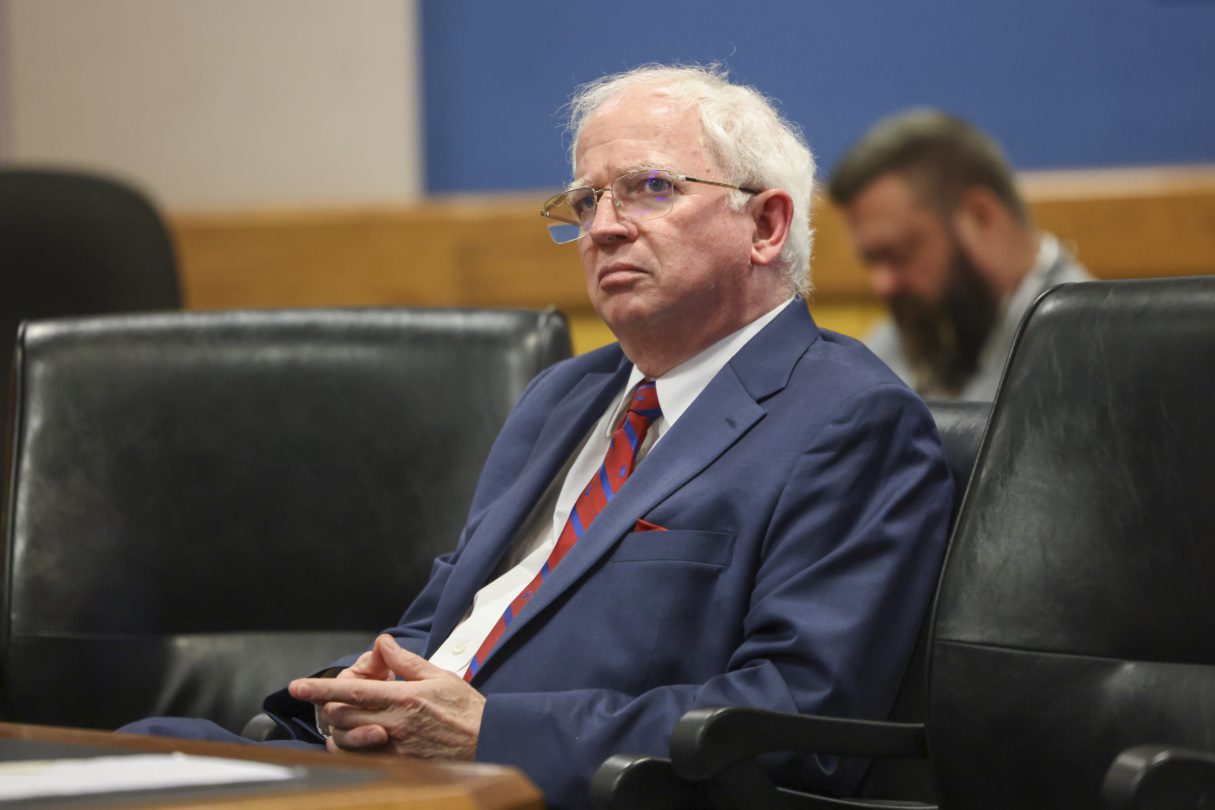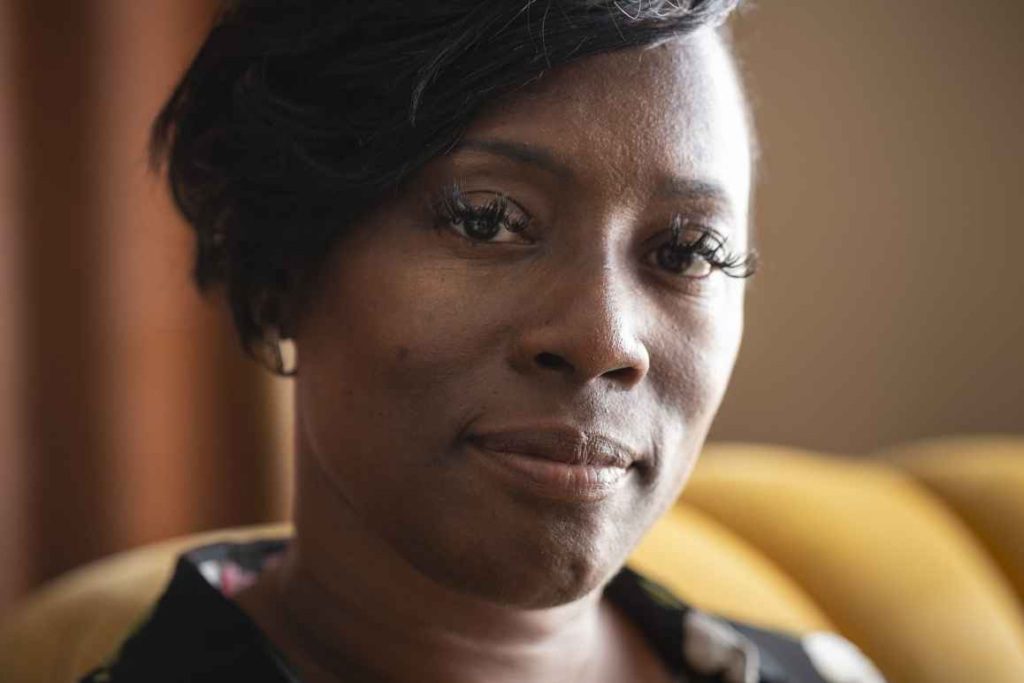‘This Is a Big Deal’
Plus: Justice in Texas. 🗳️

Published March 29, 2024
This week saw a landmark moment in the fight for democracy and the rule of law.
A California judge on Wednesday recommended disbarment for John Eastman, who was a principal architect of Donald Trump’s plot to steal the 2020 election. To protect both the public and the legal system, the judge said Eastman deserved “the most severe available professional sanction.”
Accountability takes time, but it’s worth it. States United filed a bipartisan ethics complaint against Eastman two and a half years ago, asking the California Bar to investigate “serious evidence of professional misconduct.”
That complaint clearly and methodically laid out the case that Eastman betrayed his duty to uphold the law when he helped Trump try to stop the transfer of power. Eastman pushed the unfounded theory that Vice President Mike Pence could single-handedly reverse the outcome of the election. And Eastman did so with dire consequences for our democracy.
The California Bar opened an investigation and later filed 11 disciplinary counts against Eastman. At trial last year, election officials from both parties testified that Eastman’s claims were baseless, and that the 2020 election was free, fair, and secure. Eastman stuck to conspiracy theories, even while the trial was underway.
On Wednesday, the judge concluded the bar proved 10 counts by clear and convincing evidence, including that Eastman misled the courts, failed to uphold the Constitution, and committed acts involving “moral turpitude.” Lawyers have a duty to zealously represent their clients, the judge wrote, but they must stay within the bounds of the law.
There’s more on the decision, including reaction from States United, in these reports from The New York Times, The Associated Press, CNN, and the Los Angeles Times.
Now, accountability marches on. Eastman still faces criminal charges in Georgia. Jeffrey Clark’s bar trial opened this week, and other lawyers connected to the Trump plot face their own disciplinary proceedings. It all reinforces one principle: No one is above the law—not presidents, and not their lawyers.
Justice for Crystal Mason
A Texas appeals court this week acquitted Crystal Mason, who was wrongfully convicted of illegal voting in a case that bipartisan legal experts called a clear miscarriage of justice. In 2018, Mason was sentenced to five years in prison for casting a provisional ballot in the 2016 presidential election, believing she was eligible to vote. The system worked exactly as intended: Mason’s provisional ballot received additional scrutiny, state election officials determined the Tarrant County resident was ineligible, and her vote was never counted. Despite the lack of any concrete harm to the county and no intent to commit fraud—Mason was then prosecuted, convicted, and sentenced to five years in prison for her mistake. States United filed two friend-of-the-court briefs in support of Mason’s acquittal.
Mason said she was overjoyed by the appeals court’s decision. She also expressed determination: “I was thrown into this fight for voting rights and will keep swinging to ensure no one else has to face what I’ve endured for over six years, a political ploy where minority voting rights are under attack.”

Crystal Mason. (ACLU of Texas)
Celebrating Women’s History Month
As Women’s History Month comes to a close, we celebrate the women who power and protect our democracy. State officials, election workers, pro-democracy organizations, and more all play a vital role. You can read more about some of the women leading that work on our X profile.
Women—particularly women of color—are also far more likely to endure harassment and threats of political violence. Just this week, District Attorney Fani Willis wrote that she, her family, and her staff are still receiving threats, seven months after Trump and his allies were indicted in Fulton County, Georgia. The same goes for Judge Tanya Chutkan, who is overseeing Trump’s criminal trial in D.C. There are plenty more cases like theirs, at all levels of government.
There is justice coming, though. Georgia election workers Ruby Freeman and Shaye Moss were awarded $148 million in damages in December after Rudy Giuliani falsely accused them of election fraud. A man who threatened Arizona Gov. Katie Hobbs was sentenced this week to more than two years in prison.
Our democracy depends on women—they make up 80% of election workers—but they also depend on us. It is imperative that we hold accountable those who threaten our democracy, and who threaten the women who help uphold it. We’re so grateful to all the women who partner with us in that work.
This Week in Democracy
- After a lengthy ethics trial, a judge recommended that former Trump attorney John Eastman should permanently lose his law license in California because of his role in the plot to overturn the 2020 presidential election. States United filed the initial ethics complaint in 2021 against Eastman.
➡️ READ: States United’s statement
- Former Justice Department official Jeffrey Clark began his own disciplinary trial in Washington, D.C. Clark could be the next former Trump attorney to lose his law license for efforts to overturn the 2020 election. His actions were “essentially a coup attempt at the Department of Justice,” a lawyer for the D.C. Bar said.
- The U.S. Department of Justice announced that it is cracking down on threats to election officials. Since the creation of its Election Threats Task Force in 2021, the department has brought about 20 prosecutions, with many resulting in substantial prison sentences.
- A judge imposed a partial gag order on former President Trump in his New York criminal case about falsifying business records to hide damaging information from voters before and after the 2016 election. The order prevents Trump from making statements about prosecutors, court staff, jurors, and potential witnesses. The case is scheduled to go to trial on April 15.
State of the States
In Arizona, Kari Lake requested default judgment in a defamation case brought by Maricopa County Recorder Stephen Richer. Richer brought the case after Lake spread lies and conspiracy theories alleging that he was involved in election fraud. She falsely claimed it resulted in her loss in the 2022 election for governor. By requesting default judgment, Lake essentially admitted that she defamed Richer and that her statements were untrue. “After months of doubling down and defending their lies across Arizona, in the media, and on social media, when push came to shove, the Defendants decided to completely back down and concede that their lies were just that: lies,” Richer said in a statement. The matter now goes to a jury to determine damages.
In Pennsylvania, a federal court dismissed an attempt by 24 state lawmakers to challenge the state’s automatic voter registration policy, which was implemented by Gov. Josh Shapiro. “I will always remain focused on protecting our democracy and ensuring our elections are free, fair, safe, and secure,” Shapiro said in a statement. “Let today’s ruling be another reminder that taking legal advice from Donald Trump is never a winning strategy.”
Sign up for our weekly newsletter for more here.